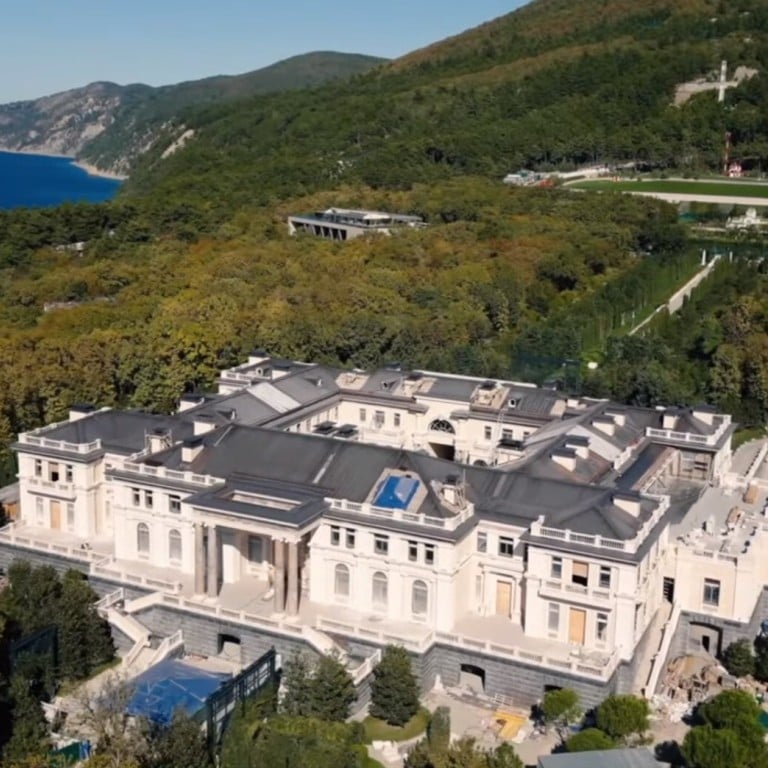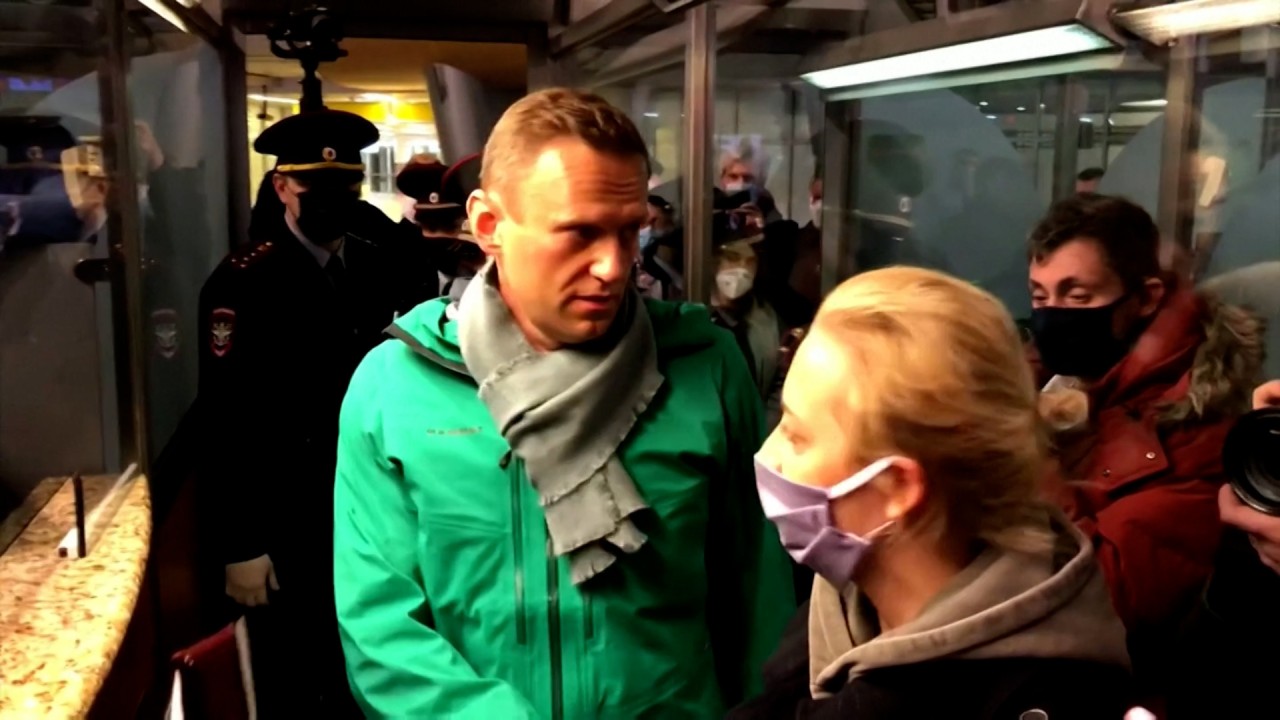
Jailed Kremlin critic Alexei Navalny claims Vladimir Putin owns secret ‘US$1.35 billion palace’
- Video alleging Putin owned lavish Black Sea property made before Navalny detention
- Kremlin says findings, which first surfaced in 2010, are untrue
The Navalny investigation, published on the opposition figure’s blog with an accompanying two-hour YouTube video recorded before his return to Russia, claims the property cost US$1.35 billion and was paid for “with the largest bribe in history”.
The report alleges that the property, located along Russia’s southern Black Sea coast, is 39 times the size of Monaco and features a casino inside a 17,691 square metre (190,424 sq ft) mansion, along with an ice rink and vineyards.
The investigation claims that Russia’s Federal Security Service (FSB) owns some 7,000 hectares (17,300 acres) of land surrounding the property and that the complex was financed by Putin’s close allies, including Igor Sechin, chief of Russian oil giant Rosneft, and billionaire tycoon Gennady Timchenko.

02:05
Kremlin critic Alexei Navalny arrested and detained upon return to Russia after near-fatal poisoning
“It is a separate state within Russia. And in this state there is a single and irreplaceable tsar. Putin,” Navalny says.
Kremlin spokesman Dmitry Peskov said the palace allegations were old and untrue.
“I’m not familiar with this investigation,” Peskov was cited as saying by the Interfax News Agency. “However, I can immediately say that this is an old record. We explained many years ago that Putin does not have any palace in Gelendzhik (in southern Russia).”
The existence of the Black Sea property and its links to Putin first became known in 2010 when whistle-blower businessman Sergei Kolesnikov described them in a public letter to Medvedev.
Alexei Navalny says Russian agent put poison in his underwear in murder plot
The investigation was published a day after Navalny, who was detained after returning from Germany for the first time since he was poisoned with the Novichok nerve agent in August, was sentenced to 30 days in jail.
Western leaders protested Navalny’s arrest but a Kremlin spokesman called it a domestic matter.
The 44-year-old anti-corruption campaigner says Putin ordered the poisoning, a claim the Kremlin has repeatedly denied.
On February 2 a court will begin deliberating over whether a suspended sentence of three years and six months that Navalny received in 2014 for fraud charges should be converted into prison time.
The Kremlin opponent on Monday called for his supporters to take to the streets in response to his arrest, with his allies planning rallies in Moscow and in cities across the country on Saturday.
In Russia, however, calls for demonstrations are always severely penalised. People need permits in order to be able to protest, but none have been issued for months due to the pandemic.
The new investigation, which ends on a call for Russians to rise up against the authorities, echoes a 2017 YouTube video in which Navalny accused then Prime Minister Dmitry Medvedev of controlling a luxury property empire.
That investigation sparked large-scale opposition protests.
Staying or leaving? Draft law revives speculation on Putin’s future
The Navalny film, posted on YouTube on Tuesday, was viewed half a million times within the space of 30 minutes.
It sparked outrage on social media. “Looks like the home of some drug lord in the tropics,” opposition politician Ilya wrote on Twitter, and posted images of the residence. “But no, it’s the Russian president’s secret palace.”
Transparency International has listed Russia as one of the most corrupt countries worldwide, and attempts to reveal corruption have proved fatal in the past.
Additional reporting by Reuters and DPA

.png?itok=arIb17P0)